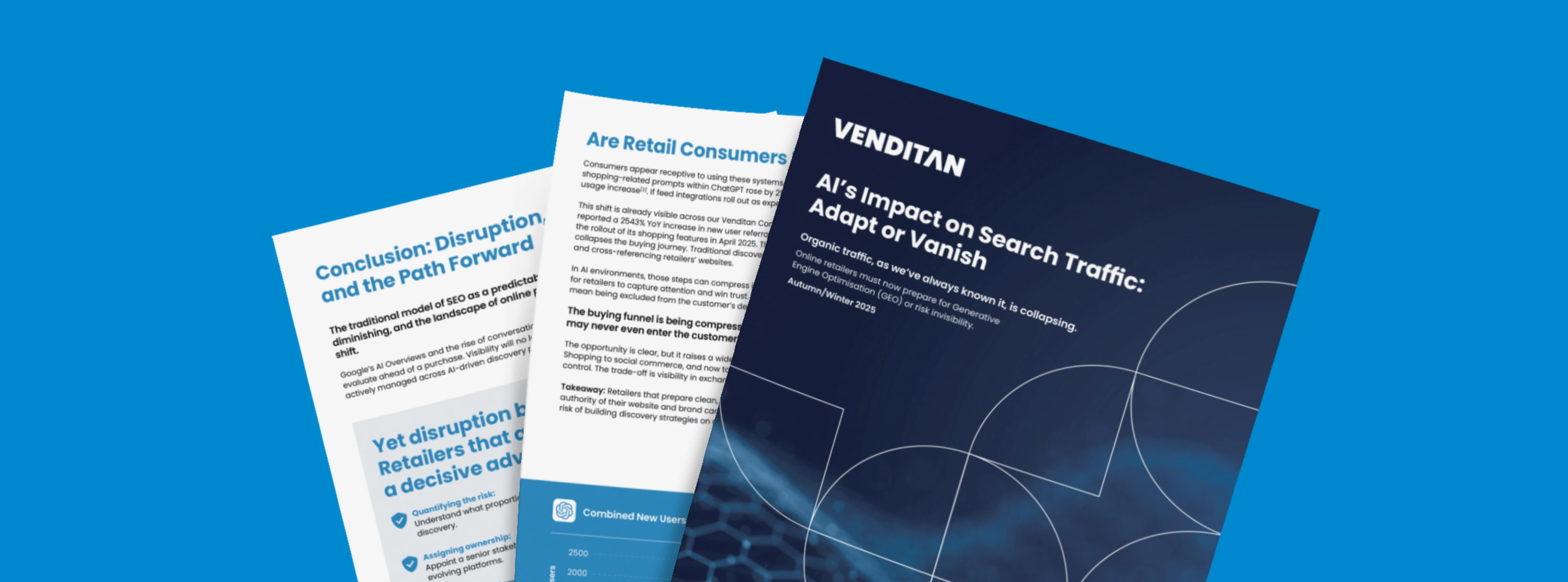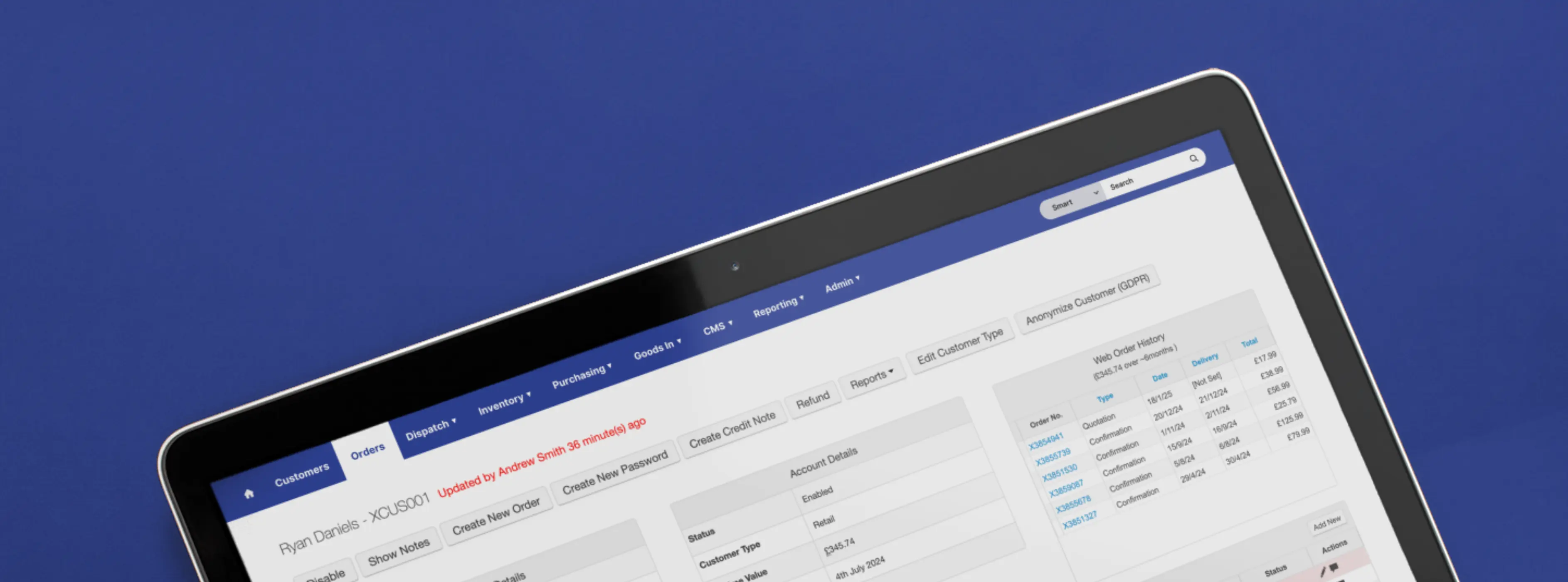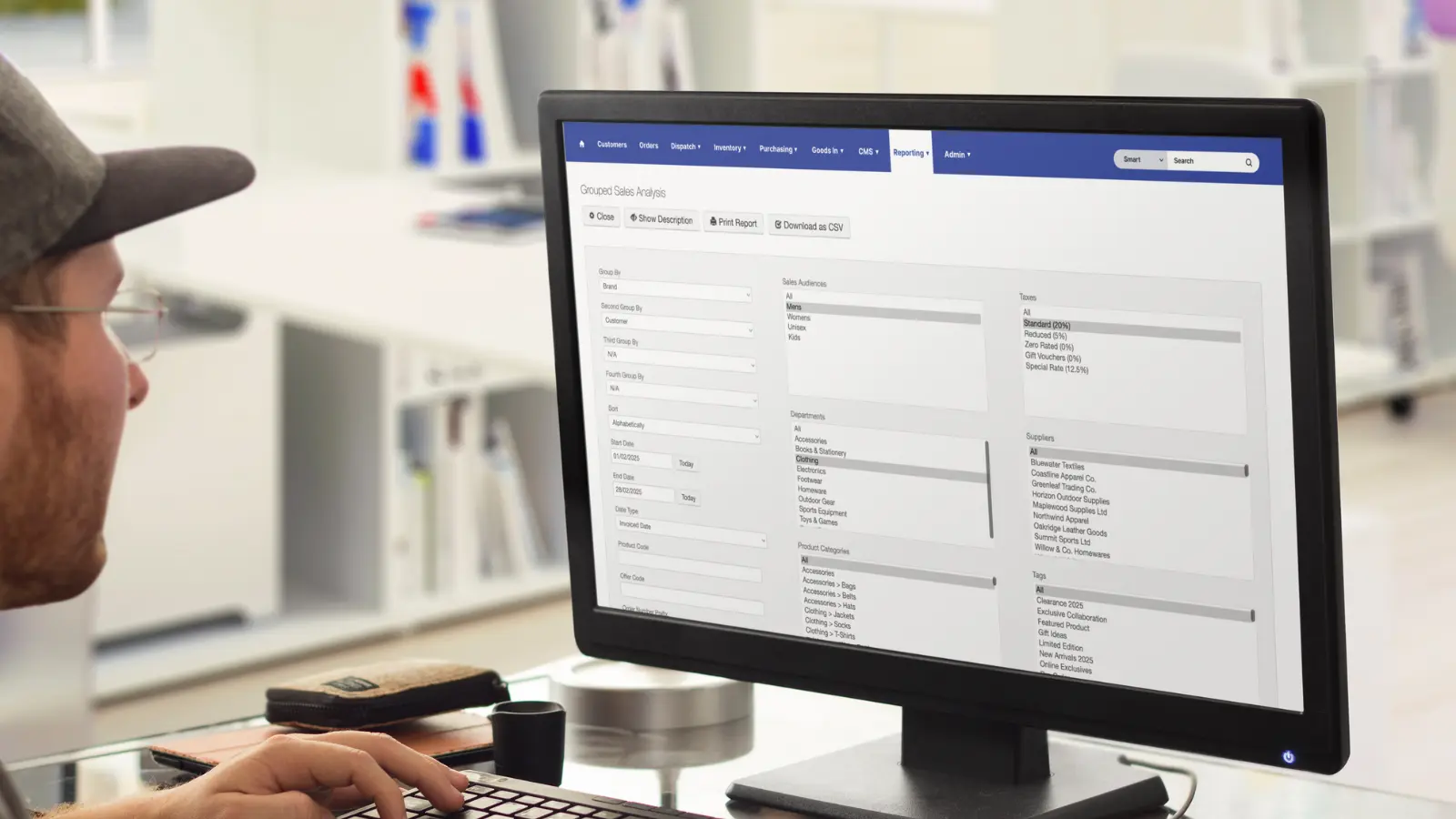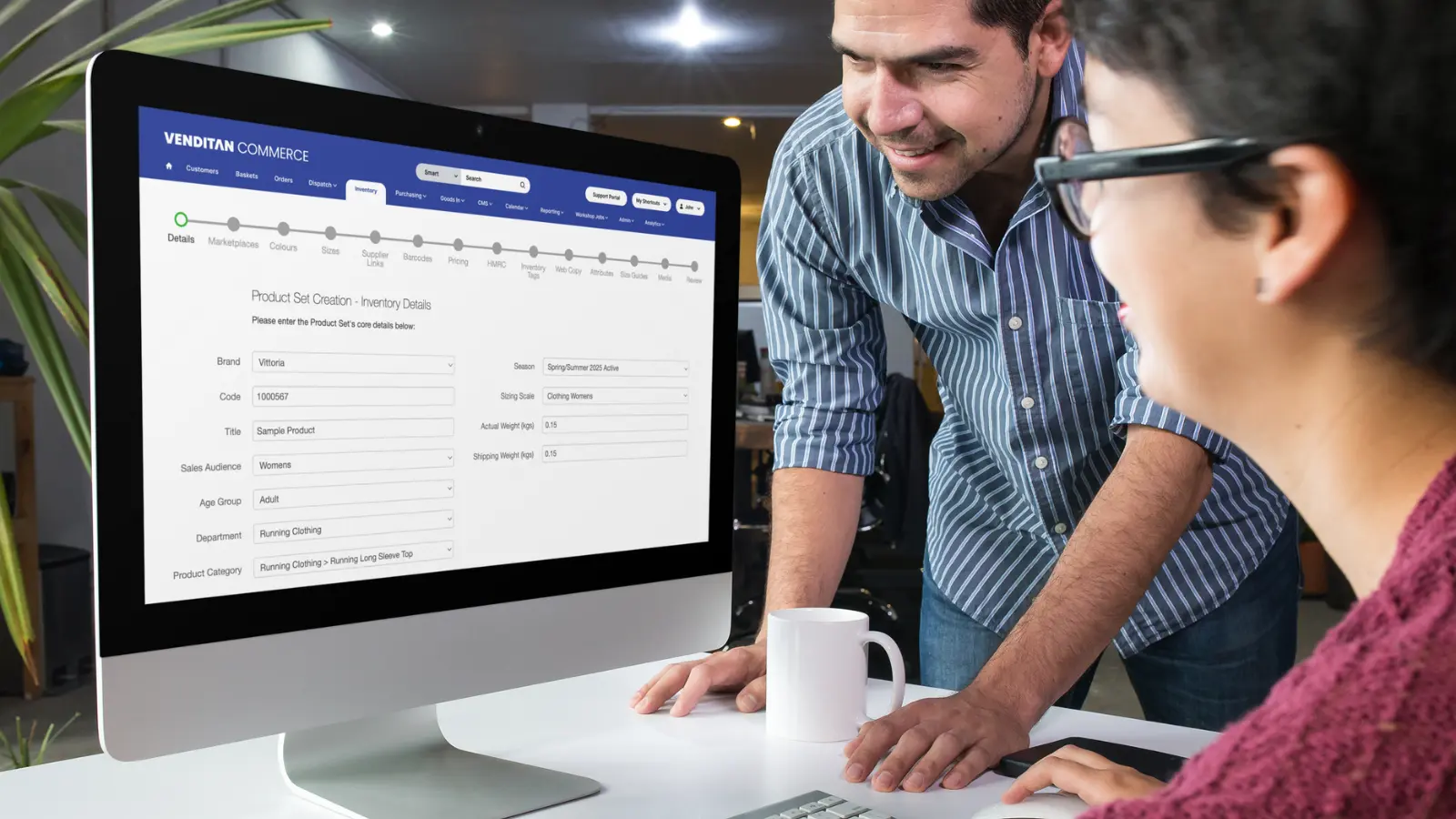You may be considering the installation of EPOS in your brick-and-mortar store, but you don’t know where to start. Perhaps, you’re experiencing a disconnect between the in-store POS you already have and your online eCommerce operation.
Regardless of the situation, we find that there are a whole host of questions that we are frequently asked when we begin a discussion around EPOS, eCommerce and how the two can work together to achieve retail efficiency and growth.
We have put together this piece to answer all of those questions in one fell swoop, starting with the basics and taking you through to the complex questions around integrations and security.
What does EPOS stand for?
EPOS stands for 'electronic point of sale.’ They are advanced till terminals that combine POS software with extra functionality such as inventory updates, sales reporting and customer management. They allow operators to do far more than simply process payments.
Are EPOS terminals complicated to use?
Not at all. Much like any website or application, the best EPOS terminals are designed with a friendly user interface in mind, and as with any new piece of technology, it is just a case of familiarising yourself with something new.
Are EPOS terminals expensive to set up and maintain?
EPOS terminal installation costs will vary based on two key factors:
- The size of the business (how many terminals need to be installed and how frequently they will need to be supported)
- The required terminal features (this will increase or decrease software development time)
The cost will always be relative to your operation. Generally, it would take us a couple of days to configure and set up EPOS terminals, along with any time for discovery and discussion to understand your requirements.

Can my EPOS terminals connect to my eCommerce website?
It is fundamental that your EPOS terminals are connected to the other storefronts that you have, including eCommerce websites, mobile applications and any other physical stores. So yes, it’s entirely possible and something that you should expect.
For example, Venditan Commerce has an EPOS system that is built directly into the platform. The system can run on any EPOS hardware that meets our minimum specifications but we do offer supported hardware from leading IT manufacturer, AURES.
This ensures:
- Easy data transfer with your website and in-store inventories synced in real-time
- Order management tools that allow you to continue a customer’s experience, whether they bought online or in-store originally
- Customer management tools that allow staff to gain an understanding of the customers’ purchasing histories and loyalty
- Pull up detailed and valuable reporting to identify trends like high-performing products and peak shopping times
- Accept payments in multiple ways, including the introduction of BNPL to EPOS, perfect for purchasing high-ticket items or large basket totals
- Generate invoices online and take the barcode in-store to complete the purchase
Over the last five years, we have installed approximately 60 AURES SANGO, YUNO and YUNO B all-in-one EPOS terminals for many different clients, as well as peripherals such as the ODP 333 thermal printer and 3S430 cash drawer.
What kinds of businesses is EPOS suited to?
EPOS solutions should be in place for all retailers that operate both in-store and online. It empowers them to offer a much more synchronised experience for their customers, with no one retail touchpoint working in isolation from the other.
Installation costs are driven by the functionality that is required at the till point, so provided the retailer's requirements are standard, EPOS does not need to be a major investment that is exclusive to the major players.
Pointers on how to maximise the effectiveness of an EPOS installation can be found later in this article.
It is entirely reasonable in 2023 for a customer to expect to be able to return a product bought in London to their local store in Manchester. With a robust EPOS solution in place, this would be perfectly achievable. The product would be returned, and this could then be reflected in a nationwide master stock record (quantity per store) and on the customer’s order history.

Technology is advancing quickly; what is the longevity of an EPOS investment?
EPOS technology can be broken down into two parts: hardware and software.
Hardware covers all the physical components necessary to run EPOS, such as the terminals, card readers, scales and displays. These pieces of kit will likely need to be upgraded as time goes on, either due to technology surpassing them or degradation over time.
Despite that, EPOS is a very good long-term investment. All of the features and capabilities are provided by the terminal’s software, and this should be regularly updated by your EPOS provider. This helps keep your technology at the forefront of modern retail and futureproofs it as far as the hardware will support it (in the same way that an iPhone 8 can still support the latest version of iOS, but the original iPhone cannot.)
Will my EPOS terminals require a good internet connection?
A lot of this will come down to whether you are using cloud or on-premise software. On-premise EPOS software is installed locally, on your terminals, and this means you can almost guarantee constant uptime as you do not rely on internet connectivity.
On the other hand, cloud software is hosted on your EPOS providers’ server, and this is then accessed via an internet browser on your terminal.
The benefits and drawbacks of cloud vs on-premise EPOS software could be discussed in an entire article, but for now, all you need to know is that yes, your EPOS terminals will require a good internet connection if it is cloud-based.
Should I expect disruption in my store?
When digitally transforming any aspect of your business, it is only natural to consider the operational implications of the project, and, of course, introducing new technologies is very likely to come with some teething problems. It’s on your EPOS provider to work with you to understand your requirements and ensure as smooth a transition as possible.
Remember that the installation will almost certainly come with all the training you and your staff members need to use the terminals correctly and, in time, maximise the various features to their full potential.
As mentioned earlier, it’s also important to choose an EPOS interface with a good UI and enter into an agreement with a vendor that offers you support should you need it.

How are EPOS terminals made secure?
The cybersecurity of EPOS is considered through:
- End-to-end encryption of all data.
- Robust antivirus software on the POS terminals.
- Lockdown procedures should the terminals become compromised.
- Having as much of the software built natively as possible, as introducing third-party, external networks increases the threat.
- Regular testing of the EPOS terminals and software to assess their strengths against the latest security threats.
- Establishing a strong cybersecurity culture across the business, particularly with the members of staff who use and maintain the devices.
How can an EPOS increase efficiency in my business?
So with all of the above considered, there is only one final question to answer: what good will it actually do for my business?
First and foremost, you are going to save so much time. With tools in place to automate daily management, reporting and analysis tasks you will be able to claim back time each day, which can be put towards another area of the business.
Not only do those tools increase efficiency, but they will provide more value to your business and help you to make better decisions. EPOS reporting can be insightful in that it should help you to understand the strengths and weaknesses of your existing retail operation, which drives actionable improvements and opportunities to scale.
By installing EPOS terminals in-store, you will have the ability to offer the modern, in-demand eCommerce payment options that are typically expected online. The power of being able to offer BNPL methods, such as Klarna, in-store is huge and extremely beneficial for any retail store that offers high-ticket items or regularly processes large basket totals.
There’s a greener element, too. If you’re still operating on traditional POS hardware then you may be running a lot of paper-based reporting. Naturally, EPOS transitions you away from that, and the ability to browse all receipts and reporting digitally is just a whole lot easier.
Finally, having your in-store POS equipment synced directly with your online eCommerce operation allows for a seamless management experience on your end and a comfortable shopping experience for the customer.
Final Thoughts
We hope that this helps set the scene and provides a detailed overview of EPOS and eCommerce.
Through our innovative retail EPOS solutions, we can seamlessly connect your physical stores back to our eCommerce platform, Venditan Commerce, and in turn, your eCommerce website. This gives you one synchronised view of your inventory and customers and enriches their experience with you.
If this sounds interesting and you would like to learn more, you can book a product demo or simply give us a call.
Our recent posts
Keep up to date with the latest news and insight from the team at Venditan
-p-2600.webp)








.webp)
%20(1).webp)
.webp)

